I’ve been meaning to post this one for some time now. I’m not sure how well “Cucurrucucu Paloma” will work for those of you who haven’t seen Almodovar’s Talk to Her, but I had to buy the soundtrack for this song alone. (Alberto Iglesias’s original score is also quite beautiful.) I just can’t imagine being able to sing like Caetano Veloso. I’d never talk again.
Category: Music
-
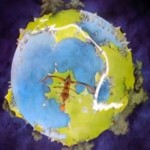
South Side of the Sky
At one point in my life — 1989 or thereabouts — I would have argued until blue in the face that Yes was the greatest rock band of all time. Not “Owner of a Lonely Heart” Yes; I’m talking about “20-minute Hammond organ solo, Jon Anderson falsetto-singing, Roger Dean album cover” Yes. It was one of my dorkier obsessions. Like, I still know most of the words to “Close to the Edge.” Thanks to iTunes and my dilligent digitizing of my CD collection, I heard “South Side of the Sky” the other day for the first time in probably ten years. My wife’s comments sum it up for me: “This is Yes? Huh. It doesn’t suck.” Actually, it’s a damn cool song. It’s certainly aged better than much of the early-70s prog rock.
As an aside: when I was 19 I played piano in a big band. One night, during a break, I started playing part of “South Side of the Sky” and within a minute the rest of the rhythm section joined in. It was really sloppy, but we made it from the end of the piano solo (the 3 minute mark) through most of the “la la la la la la la la” part.
-
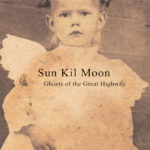
Glenn Tipton
I’m pretty sure that this will be the last time I post a Song of the Moment that is named for one of Judas Priest’s guitarists. “Glenn Tipton” by Sun Kil Moon has been in constant rotation since I first heard it Saturday night. I was drawn to the album, Ghosts of the Great Highway, by its striking cover art; it wasn’t until 30 seconds into the first track that I realized that Sun Kil Moon is the new band from Mark Kozelek, formerly of Red House Painters (and Sweetwater, if you’re an Almost Famous fan). This song is what the inside of my head sounds like these days.
Cassius Clay was hated more than Sonny Liston
Some like KK Downing more than Glenn Tipton
Some like Jim Neighbors, some Bobby Vinton
I like ‘em allI put my feet up on the coffee table
I stay up late watching cable
I like old movies with Clarke Gable
Just like my dad doesJust like my dad did when he was home
Staying up late, staying up alone
Just like my dad did when he was thinking
Oh, how fast the years flyI know an old woman ran a doughnut shop
She worked late serving cops
But then one morning, baby, her heart stopped
Place ain’t the same no morePlace ain’t the same no more
Not without my friend, Eleanor
Place ain’t the same no more
Man, how things changeI buried my first victim when I was nineteen
Went through her bedroom and the pockets of her jeans
And found her letters that said so many things
That really hurt me badI never breathed her name again
But I liked to dream about what could have been
I never heard her calls again
But I like to dream -
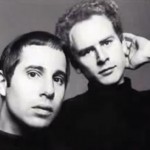
America
In December, just before Christmas, my wife and I met her parents in Atlanta for a Simon and Garfunkel concert. Afterwards, as we walked back to our hotel, my father-in-law and I talked about the highlights of the show. The Everly Brothers showed up for a song or two, which was a great surprise. And it’s tough to beat “Sounds of Silence” and “Mrs. Robinson.” But “America” will always be my favorite Paul Simon song. There’s something so beautifully melancholy about the chorus.
On January 29th, my mother- and father-in-law passed away suddenly, and I miss them terribly.
-
Battle of the Bands
After watching The Kids Are Alright (1979) for the umpteenth time over the last three weeks (God bless IFC), I have come to two important conclusions. First, given one — and only one — trip in a rock and roll wayback machine, I would set the controls for the Who’s Next Tour, circa 1971-72. You can have your Beatles versus Rolling Stones debate. Townshend is a better songwriter than Lennon/McCartney and a better guitar player than Keith Richards. And no band will ever match the Entwistle/Moon combo.
Second, someone really needs to make a biopic of Keith Moon, starring Jason Schwartzman. (Apparently I’m not the first to notice the uncanny resemblance.) That Schwartzman spent some years playing drums in a decent little band only makes the casting decision that much easier.
-
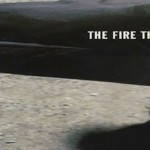
Chain
“Chain” by The Fire Theft. Why? Because the world needs a good emo waltz, that’s why.
Jeremy Enigk seems to be taking a good bit of crap for his lyrics on this album — perhaps justifiably so. ButI like this song, and especially this bit: “I’m amazed / I see the world in revolution / Within the darkness a solution”. Too simple for most tastes, I know. Too straight-forward, too lacking in ironic distance. But I like it. Of course, I’m also glad that Enigk found God, so what do I know.
Chain, I feel the words falling in a rhythm
I see the world bearing its decision to never give in
I’m amazed
I hear the words form some kind of silence
When the world falls into violence
We’ll never give inChain, I see the world falling in a rhythm
I feel the wind bearing its decision to never give in
I’m afraid
I hear the words form some kind of silence
When the world falls into violence
They’ll never give inChained in silence
The rhythm of violence
Change all around us
Change in everything you seeI’m amazed
I see the world in revolution
Within the darkness a solution
We’ll never give inChained in silence
The rhythm of violence
Change all around us
Change in everything you seeAccording to Grandaddy’s Website, The Fire Theft, Saves the Day, and Grandaddy will be playing a show in Phoenix when I’m there in March. Anyone have an opinion about Saves the Day or Grandaddy? I’m not familiar with either.
-

Cross Bones Style
The oft-repeated but still-juicy line from Godard: “The history of cinema is boys photographing girls. The history of history is boys burning girls at the stake.” You can confirm the second sentence by watching TV for three minutes. To confirm the first sentence, watch the Cat Power videos available here at the Matador website.
I don’t know who Brett Vapnek is, but she’s internalized the not-very-hidden fact that Chan Marshall is beautiful like few people are ever beautiful. She does what director Patrick Daughters does in the “Maps” video for the Yeah Yeah Yeahs — lets the remarkable looking people provide remarkability. Each Cat Power video is better than the previous one because each song is better than the previous one and Marshall is more beautiful in each successive video. (At this rate, she will soon become a small dwarf star.) “He War,” a song that drives me bananas when I can’t see her, is almost unbearable as an actual sequence of moving images. The bronzed paeans to Jean Seberg and Anna Karina and Garbo tumble through my head, but they don’t stay long. There is little to say except “I was hoping to see somebody who looked like that one day.” And I have.
— Sasha Frere-Jones -
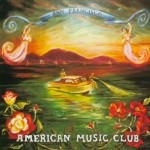
I’ll Be Gone
I have no idea why I’ve been listening to American Music Club’s San Francisco so much lately — I mean, other than because it’s a great album. “I’ll Be Gone” is a damn fine song.
It was a long hot summer day
We’re in the living room
watching the light drain away
Too tired to read what your cards foretold
Inside of a yawn
When she said,
The first time you show me your true heart
I’ll be gone.The numb ringing after the bell was rung
Playing red light green light, such timeless fun
There was no way to kickstart any conversation
It was like the beginning of 2001
When she said, I’ll be gone.The air isn’t moving and
The women have nothing on their lips
But the kind of breath that you keep
for the hospital bed
Pregnant with the timeless drop and the wind
How the air leeches the gold out of everything
elusive and stolen
I’ll be gone -
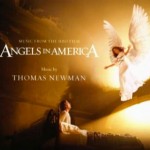
Quartet
My wife surprised me yesterday afternoon with the Angels in America soundtrack. “Quartet” accompanies the scene that holds the rare honor of having made me cry two nights in a row. What can I say? Art is my refuge from a life of hardened cynicism. I can only imagine what condition I’ll be in on Sunday night when Louis delivers the Kaddish.
But back to “Quartet” . . .
Angels is so powerful in performance because Kushner understands juxtapositions. The best example is when Louis unleashes upon Belize a rambling diatribe about “the limits of liberal tolerance,” while, on the other side of the stage, Prior undresses for a medical examination, revealing his emaciated, lesion-pocked body to the audience. Or when Louis tells Prior that he’s leaving, while, on the other side of the stage, Joe finally owns up to the truth, reducing Harper to a broken shell. (And have I mentioned how good Mary-Louise Parker is?) That is the scene that got me both times I watched Millennium Approaches — Harper’s cry for Mr. Lies to take her away and Prior’s desperate scream from his hospital bed. I have minor complaints with the film, but Nichols got that scene just right.
Thomas Newman’s score mines familiar ground, and “Quartet,” in particular, harkens to his work on American Beauty. But, all in all, the music serves the film quite well. I particularly like the main theme, which is carried by the strings and often placed in tension with a solo oboe line — a nice musical motif that echoes the ambiguous battle of angels and man.
-

Big Dipper
“Big Dipper” is one more track from a mix CD that I received recently. I’ve never been a big fan of Cracker, but this song really works for me. I love the spare arrangement, especially the acoustic piano and steel guitar, but mostly I like this song because of the lyrics and because of David Lowery’s delivery of them.
Cigarette and carrot juice
And get yourself a new tattoo
for those sleeveless days of June
I’m sitting on the Cafe Xeno’s steps
with a book I haven’t started yet
watching all the girls walk byCould I take you out
I’ll be yours without a doubt
on that big dipper
And if the sound of this it frightens you
we could play it real cool
and act somewhat indifferentAnd hey June why did you have to come,
why did you have to come around so soon
I wasn’t ready for all this nature
The terrible green green grass,
and violent blooms of flowered dresses
and afternoons that make me sleepyBut we could wait awhile
before we push that dull turnstile
into the passage
The thousands they had tread
and others sometimes fled
before the turn cameAnd we could wait our lives
before a chance arrives
before the passage
From the top you can see Monterey
or think about San Jose
though I know it’s not that pleasantAnd hey Jim Kerouac
brother of the famous Jack
or so he likes to say “lucky bastard”
He’s sitting on the cafe Xeno’s steps
with a girl I’m not over yet
watching all the world go byBoy you are looking bad
Did I make you feel that sad
I’m honestly flattered
But if she asks me out
I’ll be hers without a doubt
on that big dipperCigarettes and carrot juice
and get yourself a new tattoo
for those sleeveless days of June
I’m sitting on the cafe Xeno’s steps
I haven’t got the courage yet,
I haven’t got the courage yet,
I haven’t got the courage yet -
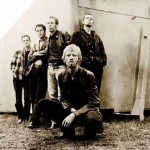
Wayfaring Stranger
16 Horsepower is a Gothic country-rock quartet from Denver, but their version of “Wayfaring Stranger” feels so fated, so instinctual, it spreads the South all over the American map, a dusting of damnation on wherever you might be as you listen. Edwards is a brilliant banjo player: His sense of rhythm is as irresistible as it is elusive. On “Wayfaring Stranger,” brilliance means the ability to play as if the player is learning the strings as he makes the notes. You can imagine the singer as the hero of Charles Frazier’s Cold Mountain, the soldier on his trek back to his North Carolina home as the Confederate Army falls apart at the end of the Civil War, stumbling over an abandoned, half-busted banjo on the road, picking it up and discovering it comes with a song, this one.
Though nothing could be more prosaically American — a believer who has wandered through this land as a witness is ready to “cross over Jordan” — the uncertainty of the player’s touch makes you feel the man isn’t telling all he knows. Singing from inside the folk character, Edwards doesn’t tell you what he’s seen, but you can guess: “I’ll drop this cross of self-denial,” he says, and suddenly a mystical groaning, now pressed by guitar as well as banjo, comes out of the ground. . . . But after only one verse, in less than a minute, the old song stops. It seems to break down into a modern void, into abstract, disembodied sounds that don’t connect to each other; you wonder what happened. Then out of that suspension, the man returns, his scratchy, everyday voice insistent that death is the last promise he will keep: He will die with this song on his lips. He’ll sing it over and over for as long as it takes.
— Greil Marcus, Interview magazine
-
Saints and Artists
Paul Ford posted a great piece on the death of Elliott Smith that is all the more timely given the impending release of that Sylvia Plath film. If I ever teach Plath — not likely, but she’s all over the 20th century American lit anthologies — I might teach Ford’s essay alongside her. Talking about that mysterious relationship between the artist and her audience is tough; it’s even tougher when that connection is forged, at least in part, by some recognition of shared misery. I don’t deny the power of Plath’s or Smith’s poetry, but I worry when they (or others like them) are transformed into romantic heroes because of suicide. Ford goes a long way in confronting the dynamics of this experience:
No story can reconnect the artist to what the artist created. But we believe one can and write biographies accordingly. Thus, the title of the Elliott Smith biography will be “Figure 8,” or “Miss Misery’s Groom,” and it will detail drug abuse, terrible acts, violences, punctuated by in-studio redemption. Everything about Smith, including anecdotes from his friends, indicated that he lived hard and left a trail of pain and shit along with his songs. So his life will become a tale full of cautions and insight about the tragedy of genius, and become the beatification of a rock saint. . . .
For the audience, is it that our heroes are monstrish with their skin peeled away, their flaws shown, and their work is thus tainted, our pleasure diminished? Or maybe worse, that they are great in spite of their normalcy, in spite of their mundane, selfish, uglinesses, and when we witness their weakness we, also weak, are put on the hook ourselves, and must acknowledge that these flawed, wife-beating drunks, these lunatic head-in-the-oven suicides, these otherwise useless men and women, were capable of greatness, of dipping their hands into history and altering the flow, while we mill about our cubicles and curse our boredom?
Grieving does nothing for the dead. We grieve for ourselves, for what we can no longer have. Elliott Smith got exactly what he wanted, and we can give and take nothing else from the man. Because it provided a sense of approval and connection, Smith’s old concerts can now be remembered as sacred events. But what a failure of the imagination: all moments are equally rare, whether someone is playing a guitar or not, whether Smith is alive or dead. Those on the message boards who are grateful they saw him perform live are fully vested in the lie that somehow the story, the man, and the experience of the music are all bound together, that the aggregate pleasure of thousands can be summed up into one living soul, one ex-addict with a beating heart, and now his entirely solitary act—seppuku without the second—can be seen as some kind of communion, a concluding act to his oeuvre of bitter depression. A pair of round cracked eyeglasses on an album cover, and a ticket stub from 1998. A bit of cloth dipped in his blood, a fragment of the true cross. It’s all about
taking
the easy way out
for you,
I suppose. -

Are You Awake?
“Are You Awake?” by Kevin Shields is almost literally a song of the moment. At 1 minute, 35 seconds, it’s my shortest selection yet. I grabbed it from the Lost in Translation soundtrack, which I’ve been listening to all day at work. There’s something beautifully hypnotic about it.
-

The Gloaming
Radiohead broke with routine on Monday night by opening with “The Gloaming.” (The complete setlist can be found here.) “The Gloaming,” like so much of the material from Hail to the Thief, played better live than on the album. I especially like Colin Greenwood’s new walking bassline. The show was broadcast live on Atlanta’s 99X and will be re-aired on Sunday night from 10 – midnight. Because of the FM broadcast there are already some great bootlegs floating around. (Not that I would support such a thing. I mean, the Song of the Moment just happened to appear on my hard drive. Like magic. One of those happy coincidences, I guess.)
-
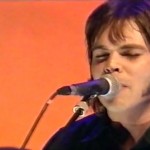
Mary
I just discovered that Supergrass will be opening for Radiohead Monday night. Very nice! I know that this opinion is terribly unhip, but I’ll say it anyway: More bands need keyboard players, and more songs need keyboard riffs like the one in “Mary.”
-
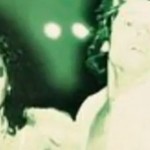
Sneakin’ Sally
Robert Palmer has passed away. For years, I knew him only as the “Addicted to Love” guy, but then a friend with a killer CD collection moved into the dorm room across the hall from mine and fired up Sneakin’ Salley Through the Alley (1975). The first three songs on that album are as good as it gets. Of course, that might have more to do with his collaboration with Little Feat than with his own talent, but Palmer obviously had good taste.
-
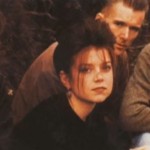
Blood on My Hands
I just didn’t get the whole groupie phenomenon until about ten years ago, when I caught The Sundays at a club called The Moon in Tallahassee. Looking up at Harriet Wheeler, my elbows resting on the raised stage, I fell instantly and deeply in love. Or maybe it was lust. Regardless, she was the most seductive beauty I had ever seen. Her hair up. A form-fitting black dress. Those impossibly large eyes. I totally would have humiliated myself at her expense. And I mean “humiliated” in the Def Leppard Behind The Music kinda way.
As beautiful as she was, though, it was the music that got to me. All of that ridiculous talent. Wheeler’s voice is some kind of marvel. Calling it “angelic” would be a cliche, I guess. But it’s not smoky exactly either, or soulful or torch-songish. It’s mostly a breath, which is probably why, a decade later, “Blood on My Hands” still gives me chills. It exemplifies all that made The Sundays such a great band — that syncopated snare hit, David Gavurin’s chorus-heavy guitar, and that beautiful, beautiful voice.
-
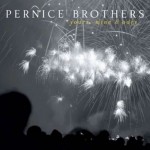
Blinded by the Stars
If there were any justice in this world, Joe Pernice would be on the cover of Rolling Stone and John Mayer would be cleaning Jan Wenner’s pool. The Pernice Brothers made a quick stop at the Pilot Light last night, where they were greeted by a packed and enthusiastic house of Knoxville hipsters. And on a Monday night, no less. Joe is the quintessential reluctant rock star, a guy whose downward glances between songs betray something like embarrassment. When he thanked the crowd, he seemed genuinely surprised that we were there to see him and that we were having such a damn good time.
Yours, Mine & Ours, the latest release from The Pernice Brothers, is a nearly perfect collection of pop songs, impeccably produced and just dripping with melodic melancholy. “Blinded by the Stars” earned Song of the Moment honors by winning a tight, three horse race, with “Water Ban” and “Baby in Two” tying for second. “Blinded” won thanks in large part to this particular lyric:
I would tell the world that I love you,
But the waiting game is as serious as statue. -
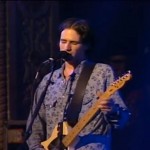
Dream Brother
Even before Jeff Buckley drowned at 30, his voice was thick with melancholy and tragedy. Grace is without question one of the finest albums of the 90s, and “Dream Brother,” the disc’s closer, is proof. Amazing.
-
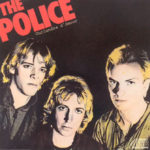
Next to You
These are dark days in K-town. On Saturday night, the Jack Astronauts played their farewell show at Manhattan’s in the Old City, and they will be missed. Along with their usual fare — loud, fast surf rock — they also threw in some great covers, including The Ramones’ version of “Happy Birthday” (for our friend’s 28th), “Ace of Spades” by Motorhead, and “Next to You” by The Police.
Bon Voyage, Curt and Mike.
-
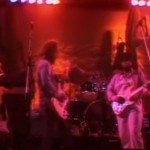
Little Feat Mix
Let me make this point perfectly clear: Little Feat is the great unsung American rock and roll band. The July mix is a collection of songs from their golden period — roughly 1972 – 1978 — the years when founder Lowell George was at his peak. I’ve deliberately omitted a few staples, including their most famous numbers “Dixie Chicken,” “Oh Atlanta,” and “Willin’,” so that I could dig a bit deeper into the catalog.
“Easy to Slip” — The opening cut of Sailin’ Shoes (1972), the Feat’s second album and their last as a four-piece. Singer/songwriter/slide-guitar-genius George and bassist Roy Estrada formed the band after leaving the Mothers of Invention. They were joined by pianist Billy Payne and drummer Richie Hayward, both of whom continue to tour and record with the ’90s incarnation of the Feat. “Easy to Slip” is just a perfect opener.
“Two Trains” — From Dixie Chicken (1973), which introduced the classic Feat lineup. Estrada left to rejoin the Mothers and was replaced by Kenny Gradney, who was joined in the rhythm section by percussionist Sam Clayton. Paul Barerre, another top-notch singer and songwriter, also added a second guitar to the sound. A nice display of George’s trademark slide playing, “Two Trains” was later reworked for his first solo album, Thanks I’ll Eat It Here (1979).
“The Fan” — Feats Don’t Fail Me Now (1974) is far and away my favorite of their studio albums. The main thing to know about Little Feat is that Hayward, Gradney, and Clayton consistently created the fattest pocket ever enjoyed by a rock and roll band. Gradney is that selfless bass player that every great band needs — seldom flashy but always teeth-rattling.
“All That You Dream” — By the time they made The Last Record Album (1975), Barerre and Payne were beginning to contribute more of the songwriting. If I could step into a wayback machine to see Lowell George sing just one Little Feat song, I might choose Barerre’s “All That You Dream” — just so I could tip my head back and sing the opening line at the top of my lungs, “I’ve been down, but not like this before.” More songs should open with the chorus.
“Got No Shadow” — One of the first of Payne’s Feat tunes (1972), it also might be his best. “Got No Shadow” is probably my favorite cut from Sailin’ Shoes.
“Juliette” — Dixie Chicken is most known for the Bourbon Street boogie-woogie of the title track, but most of the album sounds more like “Juliette,” which is just a beautiful song. I love the production of this album. It’s warmer and a bit cloudier than anything you’ll get today. Even on CD, you can practically hear the record needle pop.
“Day or Night” — George is credited for only two of the nine songs on Time Loves a Hero (1977). By the end of the ’70s, most of his time was devoted to other “recreational” pursuits (which would lead to his death a few years later). The Feat’s sound changed accordingly. Hero features Michael McDonald and Skunk Baxter on a few tracks — evidence that, like the Doobies, Little Feat became slightly Steely Dan-ified during this period. It works on “Day or Night.”
“Time Loves a Hero” — Little Feat does Jimmy Buffett? Not my favorite track, but it’s such a great singalong chorus, and I like the bassline.
“Cold, Cold Cold” — A great antidote to the uber-production of “Hero,” “Cold” is Lowell George in concentrated form. This song shows up again at the end of Feats Don’t Fail Me Now. On the Live at Rockpalast DVD, you can listen to a running commentary with Payne, Barerre, and George’s widow. Her response to “Cold, Cold Cold” is classic. It couldn’t have been easy to hear her husband sing, “That woman was freezing, freezing cold.”
“On Your Way Down” — I could listen to this song every day for the rest of my life. Written by Allen Toussaint, “On Your Way Down” was just made for George’s voice, which never sounded better.
“Roll Um Easy” — Lowell George and an acoustic guitar. What I wouldn’t give for a chance to sit alone in a room with that voice.
“Skin It Back” — I had planned to only include songs with George on lead vocal, but Barerre sounds so good here. I’ve been known to break into this song at odd moments. And once I get started . . . “Well, I’m waiting for something to take place, something to take me away from this place, round city to city, town to town, runnin’ around in the shoes of a clown, and that desperate . . .”
“Day at the Dog Races” — I just had to include this one. The story goes that “Dog Races” was written during those long hours when the rest of the band was waiting for George to show up for rehearsals. What began as an impromptu jam grew into one of Little Feat’s few instrumentals. The 12-minute definitive version is now available on the remastered 2-disc Waiting for Columbus, but this studio version from Time Loves a Hero proves, I think, that they were capable of music as harmonically and rhythmically interesting as anything that Return to Forever and Weather Report were doing in the late-70s. Plus, how good is Billy Payne? He’s Rick Wakeman with a soul.
“Mercenary Territory” — If you don’t own a Little Feat album, just go buy the newest release of Waiting for Columbus (1978), which is without a doubt the greatest live rock album ever, Live at Leeds be damned. “Mercenary Territory” is relatively bland for the first two minutes, but then it changes gear, switching into a groovy walking bassline and Lowell George slide solo. When Lenny Pickett from Tower of Power unleashes his sax solo, all hell breaks lose. As he’s climbing into ridiculously high notes, notice how George is trailing him with his slide. If it don’t make the hairs stand up on the back of your neck, then you ain’t breathin’.
“Spanish Moon” — Little Feat, at their best, make you feel like you’re walking through the French Quarter, and this live version of “Spanish Moon” does that better than any other single track I can think of.
“Fool Yourself” — Consider it a coda.
-
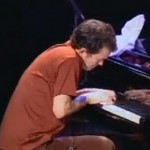
Exit Music (For a Film)
Brad Mehldau is such a ridiculously talented pianist, composer, and arranger. His cover of Radiohead’s “Exit Music (For a Film)” isn’t particularly representative of his work, which is often more improvisatory and freeform (check out his Elegiac Cycle album), but it seemed a timely choice. Mehldau’s also been known to cover Neil Young, Nick Drake, Van Morrison, and The Beatles. The liner notes of his album, Progressions, features an original essay on music and the discourse of democracy that floats fluently through Foucault and Faust, Kant and Kubrick. It’s well worth a read.
-

There There
Yeah, so like everyone else of my general demographic, I’m listening to the new Radiohead. I mean, it’s, like, required, right? So far, “There There” is my favorite track. Especially at high volumes.
-
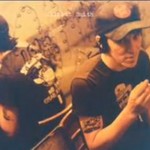
Cupid’s Trick
“Cupid’s Trick” is my favorite Elliot Smith song, and I’ve been listening to a good bit of Elliot Smith lately, for what it’s worth.
-
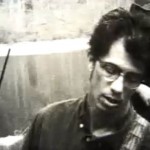
Resplendent
What to hear a perfect song? “Resplendent,” by Bill Mallonee and Vigilantes of Love, is as close as it gets. There’s the Bruce Cockburn-like guitar, that sweet snare drum shuffle, and Emmylou’s harmonies. And then there’s the lyrics. When Mallonee sings, “Honey, we’re all resplendent,” you just know that he’s right. (Thanks for this song, Candace.)
I remember the dark clouds raining dust for days on end
Blew all the Earth out to California
Just left us here with the wind
Desperate times, you know everbody’s part
It’s your own lines you’d like to forget
Till what you were meets what you’ve now become
And grins and says, “Hey, haven’t we met?”Lost my first born that Winter
My wife on the first day of Spring
So I poured my sweat to the Earth
To see what that harvest would bring
And I remember how the fury
Just like a plague of locusts
Egypt’s punishment for sins of pride
Is that now what has come over us?How much of this was meant to be?
How much the work of the Devil?
How far can one man’s eyes really see
In these days of toil and trouble?Honey, we’re all resplendent,
Yeah, Honey, we are all thrift store
Like a wine-o with a $20 bill
Yeah, forever and eternally yours
And I can make you promises
If you don’t expect too much,
Yes, and I will run the distance
If you’ll please, please excuse my crutchHow much of this was meant to be?
How much the work of the Devil?
How far can one man’s eyes really see
In these days of toil and trouble?How much of this is failing flesh?
How much a course of retribution?
My, my, how loudly we plead our innocence
Long after we made our contribution -
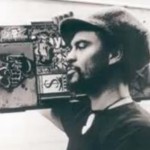
Bomb the World
Given my general musical tastes, one of the oddest birds in my CD collection is Hypocrisy is the Greatest Luxury by The Disposable Heroes of Hiphoprisy. Ten years later it still gets a good bit of play in my house, mainly because of Michael Franti’s voice and his witty, literate, progressive lyrics. “Television” and the title track are both classics. And “Satanic Reverses” (can’t find the lyrics online) is more appropriate now than in ’92. (How many hip-hop artists can say that?) In ’94, Franti formed Spearhead, one hell of a roots-based band, and has remained politically engaged. “Bomb the World” is his response to recent events.
-

Until the End of the World
I usually use the “Song of the Moment” to promote music that readers might not hear otherwise. So why U2? I’m just stuck on “Until the End of the World” right now, and I’m not sure why. It has nothing to do with politics (although I’ve certainly admired many of Bono’s recent statements). And I never even got around to buying Achtung Baby. I think it’s because I’ve had Angels in America on the brain lately, and the production we saw blared late-80s, early-90s U2 during the scene changes. Yep. That’s gotta be it. Enjoy.
-

Therefore, I Am
The tunes have begun to roll in. A few weeks ago I offered to send copies of my mix CDs to anyone who returned the favor. The new Song of the Moment — Jim O’Rourke’s “Therefore, I Am” — is a surprise from disc 1 of a 2-disc set sent by David in Edmonton. This track is just so rock and roll. I love it. A little advice: the louder you play it, the more transcendent it becomes.
-
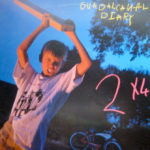
A Mid-’80s Mix
Between roughly April 1987 (a month before my 15th birthday) and June 1988 (a month after my 16th), I did all of the following:
- Traveled to Europe, where I had my first real crush.
- Received an electric razor as an unexpected present from the folks.
- Made my one failed attempt at traditional high school popularity (J.V. football).
- Attended my first arena rock concert (Rush’s A Show of Hands Tour)
- Got my first real job (“sandwich artist” at Subway)
- Began blowing all of my money on audio equipment (including my first CD player).
- Attended my first stadium rock concert (Pink Floyd’s Delicate Sound of Thunder Tour).
- Got my driver’s license.
The March mix is a collection of songs that now leave me paralyzed with nostalgia. As best as I can remember, these are the some of the more important songs that accompanied my life that year, when everything, it seemed, was so painfully important. This one could easily have grown to a 2- or 3-disc set. Conspicuously absent are: Peter Gabriel, Sting, King Crimson, INXS, The Police, Robert Plant, The Clash, Yes, Roger Waters, Indigo Girls, Howard Jones, Led Zeppelin, and Boston (yes, Boston).
- “Litany (Life Goes On)” by Guadalcanal Diary
- “Pretty in Pink” by The Psychedelic Furs
- “Subdivisions (Live)” by Rush
- “Medicine Show” by Big Audio Dynamite
- “Never Let Me Down Again” by Depeche Mode
- “Dear God” by XTC
- “Welcome to the Occupation” by R.E.M.
- “Abacab” by Genesis
- “It’s Over” by Level 42
- “One Slip” by Pink Floyd
- “Just Another Day” by Oingo Boingo
- “Cool for Cats” by Squeeze
- “If I Should Fall from Grace with God” by The Pogues
- “Another Tricky Day” by The Who
- “Give Blood” by Pete Townshend
- “The Working Hour” by Tears for Fears
- “Bullet the Blue Sky” by U2

